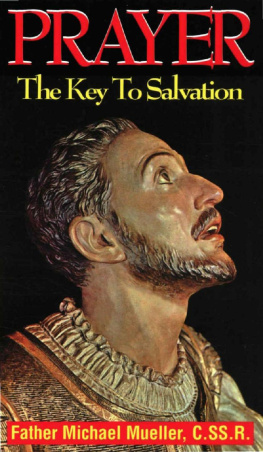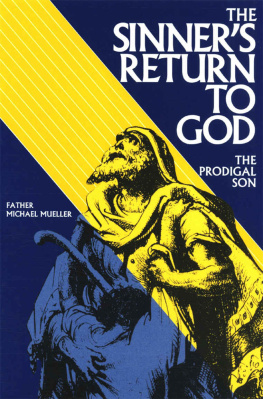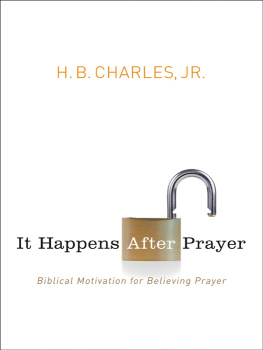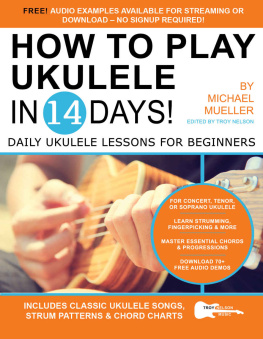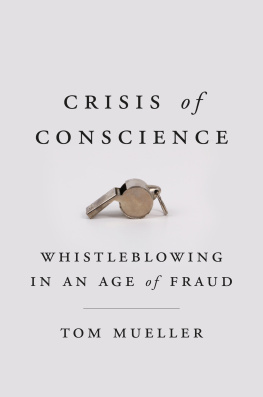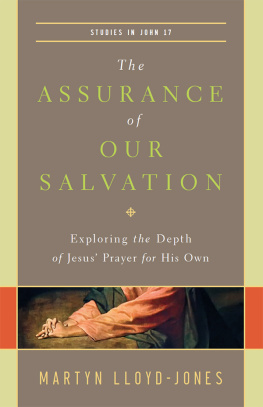Rev. Fr. Michael Mueller - Prayer: The Key To Salvation
Here you can read online Rev. Fr. Michael Mueller - Prayer: The Key To Salvation full text of the book (entire story) in english for free. Download pdf and epub, get meaning, cover and reviews about this ebook. year: 2015, publisher: TAN Books, genre: Religion. Description of the work, (preface) as well as reviews are available. Best literature library LitArk.com created for fans of good reading and offers a wide selection of genres:
Romance novel
Science fiction
Adventure
Detective
Science
History
Home and family
Prose
Art
Politics
Computer
Non-fiction
Religion
Business
Children
Humor
Choose a favorite category and find really read worthwhile books. Enjoy immersion in the world of imagination, feel the emotions of the characters or learn something new for yourself, make an fascinating discovery.
- Book:Prayer: The Key To Salvation
- Author:
- Publisher:TAN Books
- Genre:
- Year:2015
- Rating:4 / 5
- Favourites:Add to favourites
- Your mark:
- 80
- 1
- 2
- 3
- 4
- 5
Prayer: The Key To Salvation: summary, description and annotation
We offer to read an annotation, description, summary or preface (depends on what the author of the book "Prayer: The Key To Salvation" wrote himself). If you haven't found the necessary information about the book — write in the comments, we will try to find it.
Prayer: The Key To Salvation — read online for free the complete book (whole text) full work
Below is the text of the book, divided by pages. System saving the place of the last page read, allows you to conveniently read the book "Prayer: The Key To Salvation" online for free, without having to search again every time where you left off. Put a bookmark, and you can go to the page where you finished reading at any time.
Font size:
Interval:
Bookmark:
Prayer
The Key to Salvation
Father Michael
Mller, C.SS.R .
| Imprimatur: |  | Martin John Spalding, D.D. |
| Archbishop of Baltimore | ||
| October 22, 1867 |
Entered according to Act of Congress, in the year 1872, by Fr. Pustet, in the Office of Librarian of Congress, Washington.
Re-typeset by TAN Books.
Library of Congress Catalog Card No.: 85-52207
ISBN: 0-89555-287-6
Typography is the property of TAN Books, and may not be reproduced, in whole or in part, without written permission of the publisher.
TAN Books
Charlotte, North Carolina
www.TANBooks.com
1985
PROTEST OF THE AUTHOR
In obedience to the decrees of Urban VIII, of holy memory, I protest that I do not intend to attribute any other than purely human authority to all the miracles, revelations, graces, and incidents contained in this book; neither to the titles "holy" or "blessed," applied to the servants of God not yet canonized, except in cases where these have been confirmed by the Holy Roman Catholic Church, and by the Holy Apostolic See, of whom I profess myself an obedient son. And, therefore, to their judgment I submit myself and whatever I have written in this book.
CONTENTS
OBLATION
My Lord Jesus Christ, behold, I offer Thee this little work in union with that unspeakable charity which moved Thee to say: "Whatsoever you ask the Father in my name, that will I do: that the Father may be glorified in the Son. If you ask me any thing in my name, that I will do." ( John 14:13-14). I offer this book to Thee on the part of all Thy creatures, because it is Thine ineffable tenderness for them which caused Thee to make them so unlimited a promise, thereby to draw them to Thyself, and to unite them to Thee eternally. Take this book, I beseech Thee, into Thy Divine keeping, that it may glorify the Omnipotence of Thy Father, Thine own Infinite Wisdom, and the unspeakable love of the Holy Ghost. I offer it to Thee in fervent thanksgiving for all the graces which Thou hast bestowed or wilt bestow through this little work, even to the end of the world. Place it, I beseech Thee, upon Thy most merciful Heart, that every word contained therein may be penetrated with Thy Divine sweetness, and fertilized by the merits of Thy holy life and of Thy Five Wounds. Consecrate, by an everlasting benediction, all that is said therein, that it may promote the salvation of those who read it with humble devotion. Inspire them with an irresistible desire of giving themselves up to prayer, that thus may be accomplished that exceedingly great desire of Thine, of manifesting Thyself to them in all Thy eternal goodness and charity; take them, as it were, into Thy Divine Heart as into a safe harbor of salvation, and breathe into their souls Thy eternal Divine Life and Truth. And as I am an utterly vile and unworthy creature, I offer Thee, in satisfaction for all my deficiencies and omissions, my blindness and ignorance, Thy own sweetest Heart, ever full of Divine thanksgiving and eternal beatitude.
Dear Mother Mary, do you also pray to your Divine Son for all those who may read this little book.
Chapter 1
INTRODUCTION
"Evil communications corrupt good manners," is a proverb as old as human experience. Why is it that association with the great and good improves our manners and our morals? I meet a great and good man; I hold intercourse or communion with him, and am never after what I was before. I feel that a virtue has gone forth from him and entered into my life, so that I am not, and can never be again, the man I was before I met him. What is the explanation of this fact? How happens it that I am benefited by my intercourse with the good, and injured by the intercourse with the bad? How is it that one man is able to influence another, whether for good or for evil? What is the meaning of influence itself? Influence, inflowing, flowing inwhat is this but the fact that our life is the joint product of subject and object? Man lives, and can live only by communion with that which is not himself. This must be said of every living dependent existence. Only God can live in, from, and by Himself alone, uninfluenced and unaffected by anything distinguishable from His own being. But man is not God, is not being in himself, is not complete being, and must find out of himself both his being and his completeness. He lives not in and from himself alone, but does and must live in and by the life of another.
Cut off man from all communion with external nature, and he dies, for he has no sustenance for his body, and he must starve; cut him off from all communion with moral nature, and he dies, starves, morally; cut him off from all moral communion with a life above his own, and he stagnates, and can make no progress. All this everybody knows and concedes. Then to elevate man, to give him a higher and nobler life, you must give him a higher and nobler object, a higher and nobler life with which to commune. To elevate his subjective life, you must elevate his objective life. From the object must flow into him a higher virtue, an elevating element.
To illustrate: What is the good of each being? It is that which makes the being better and more perfect. It is clear that inferior beings cannot make superior ones better and more perfect. Now the soul, being immortal, is superior to all earthly or perishable things. These, then, cannot make the soul better and more perfect, but rather worse than she is; for he who seeks what is worse than himself makes himself worse than he was before. Therefore, the goodthe life of the soulcan be only that which is better and more excellent than the soul herself is. Now God alone is this GoodHe being Supreme Goodness Itself. He who possesses God may be said to possess the goodness of all other things, for whatever goodness they possess they have from God. It follows, then, most clearly that the closer our union is with God, or the more intimate our relation to Him is in this life, the more contentment of mind and the greater happiness of soul shall we enjoy.
Now communion between God and man is possible, for like communes with like. Now man has in his own nature a likeness to God. Human reason is the likeness in man of the Divine reason, and hence nothing hinders intercommunion between the reason of God and the reason of man. Though Divine reason, as the object, is independent of the human, and does not live by communion with it, yet the human reason lives only by communion with the Divine, as in all cases the subject lives only by communion with the object, and not reciprocally the object by communion with the subject. By this communion the subject partakes of the object, the human reason of the Divine reason, which is infinite, absolute truth.
Human reason, then, to live, to be, and to remain enlightened, must be and remain in communion with the Divine reasonwith God. The more intimate its communion with God is, the more it will be enlightened, happy, and contented. Now this happy communion between the human and Divine reasonbetween the soul and Godremains established as long as the human reason acknowledges its dependence on the Divine reason, or as long as man obeys God's will, considers God as his Supreme Lord and Good, and the only Source of all true happiness.
When God made man, He might, by an act of His will, have decreed that the human reason should forever obey Him by an unvarying fixed law, as the stars do.
But God has His complacency in the homage of our free will, and so He made us free men, and not puppets, that nod the head and bend the knee as the wires are pulled. The Holy Scripture says of everything made by God: "And God saw that it was good." Man alone did not receive this praise. Why? It is because man has it in his power to become bad; he is free to choose good or evil, to side with God or with the devil, to follow truth or falsehoodlight or darknessto embrace virtue or vice. It is from this twofold liberty that have risen, from the beginning of the world, two powers, two elements continually combating each otherthe good and the badthe followers and children of God, and the adherents and friends of the devil. St. Michael the Archangel, and Lucifer, the prince of the apostate angels, combat each other in Heaven; Cain and Abel in the family of Adam; Isaac and Ismael in that of Abraham; Jacob and Esau in that of Isaac; Joseph and his brethren in the family of Jacob; Solomon and Absalom in that of David; St. Peter and Judas in the company of Our Lord Jesus Christ; the Apostles and the Roman emperors in the Church of Christ; orthodox faith, or the Catholic Church, and heresy and infidelity, in the kingdom of God on earth; the just and the wicked, in all places; in fact, where is that country, that city, that village, or that family, howsoever small it may be, where these two elements or powers are not found in opposition?
Next pageFont size:
Interval:
Bookmark:
Similar books «Prayer: The Key To Salvation»
Look at similar books to Prayer: The Key To Salvation. We have selected literature similar in name and meaning in the hope of providing readers with more options to find new, interesting, not yet read works.
Discussion, reviews of the book Prayer: The Key To Salvation and just readers' own opinions. Leave your comments, write what you think about the work, its meaning or the main characters. Specify what exactly you liked and what you didn't like, and why you think so.

